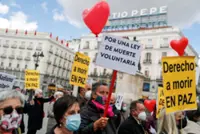PETALING JAYA: High levels of stress and anxiety are affecting today’s fathers as they toil to meet both the demands of work and societal expectations as family breadwinners and caregivers, experts and fatherhood activists say.
They pointed out that the evolving role of fatherhood, from traditionally only being the main provider to one deeply spliced with society’s expectations as a caregiver at home, is being fleshed out without supportive policies unlike those tailored to mothers.
Better Dads Malaysia, a non-profit organisation working to promote healthy and responsible fatherhood, said the psychological impact from such layers of pressure had brought about anxiety and depression as seen during the Covid-19 pandemic.
“We engaged with many men through our programmes during the pandemic years and noted a significant uptick in the cases of men suffering from depression,” said Better Dads Malaysia co-founder and adviser Jason Leong.
According to the recently released 2023 National Health and Morbidity Survey (NHMS), one million Malaysians aged 15 and above suffer from depression.
Worse, said Leong, studies by the Health Ministry and police also found that between 2020 and 2023, men were at least three times more likely to commit suicide compared to women.
ALSO READ: Appreciating the man of the house
Universiti Sains Malaysia’s gender and leadership expert Dr Zaireeni Azmi said high levels of stress among men are common, especially those grappling with financial instability or from the lower income group.
“Society expects fathers to excel both at work and parenting, which directly or indirectly increases stress levels.
“In a way, some (are experiencing levels of stress) due to feelings of inadequacy, as sometimes they feel that they could not shoulder both responsibilities at the same time,” she said.
Zaireeni said the presence of supportive policies, such as the current seven-day paternity leave for civil sector employees following the amendment of the Employment Act 1955 in January last year, remains inadequate.
“Fathers need to be more involved in welcoming and caring for their babies.
“For example, my child was suffering from jaundice for about three weeks and I would need my husband to be there to support and help us. Suffice to say, one week is not enough.
“If fathers’ workplaces do not adapt to their needs, it will lead to increased stress levels among the fathers.
“Working for companies that do not have father-friendly policies can affect their mental well-being,” she said.
ALSO READ: Ideas for different kinds of dads
The lack of interaction between fathers and children in a family can lead to the latter suffering from stress and anxiety too, as well as feelings of neglect, according to a study done by the University of California.
Better Dads Malaysia co-founder and chairman Joshua Hong proposed for relevant bodies to come up with policies that could help fathers achieve a healthy work-life balance.
“Addressing these systemic issues requires a multifaceted approach, including policy reforms, cultural shifts and the promotion of healthier work-life success practices to support fathers in their vital role within families and communities.”
Hong said among others, such practices could include working policies that promote flexible hours, telecommuting and parental leave options.
“This may also lead to a changing cultural mindset so that men can take on more responsibilities as caregivers in the home, thus freeing and empowering their wives to return to the workforce.
“(The percentage of) women in our country’s workforce is low at 56% compared to 82% for men,” he said.
On parental leave, Hong said a robust policy would provide more time for fathers to bond with their children.
“Paid parental leave not only supports fathers in their caregiving roles but also fosters gender equality in parenting responsibilities.”
He said Malaysia could emulate Sweden, Iceland and Japan in their father-friendly policies on parental leave.
“For example, in Iceland, a new legislation in 2021 extended the duration of combined maternity and paternity leave to a total of 12 months, split equally between the mother and father (six months each).
“However, parents are also allowed to transfer up to one month of leave to the other parent so that one takes seven months and the other takes five. Leave is paid at 80% of the employee’s annual salary.”
As for mental health support, Hong said there should be better access for fathers to counselling, therapy and support groups that can help fathers manage stress, anxiety and depression effectively.
“We have a major shortage of counsellors.
“There are only 9,562 licensed and registered counsellors in Malaysia currently even though back in 2019, the Women, Family and Community Development Ministry wanted to increase the number of registered counsellors to at least 11,000.
“(Yet) the Malaysian Board of Counsellors has not been able to achieve this,” he said.





